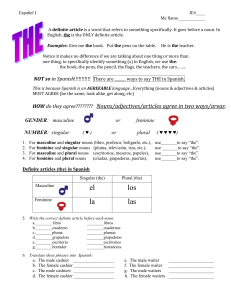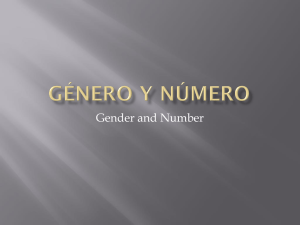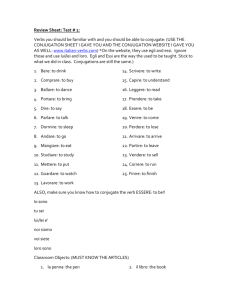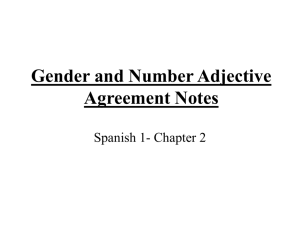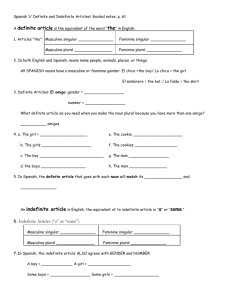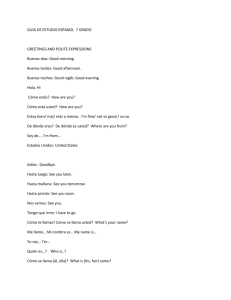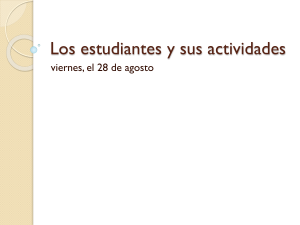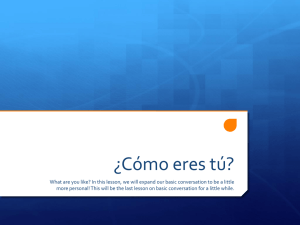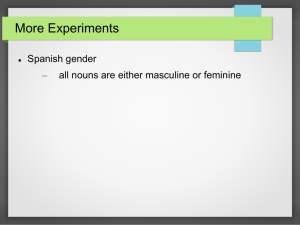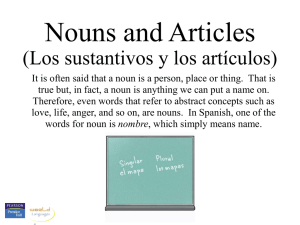Spanish - bhlspectrum
advertisement
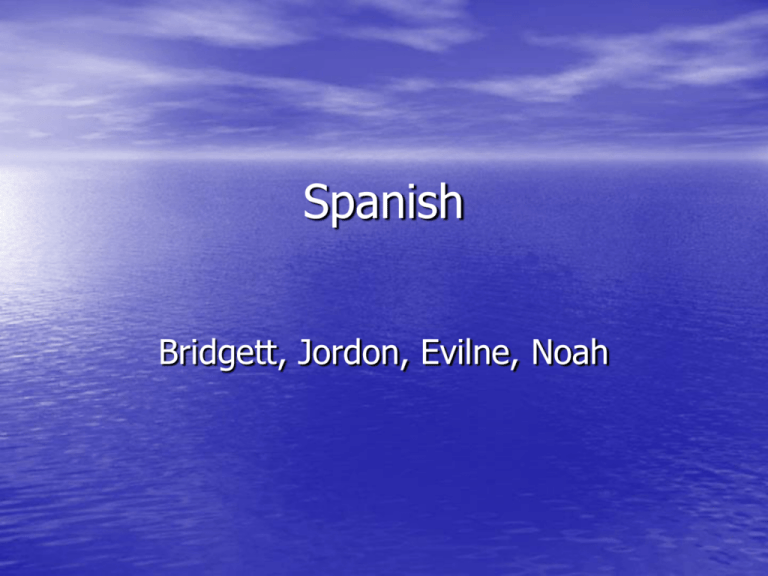
Spanish Bridgett, Jordon, Evilne, Noah Capitulo 1a Vocabulario • Baliar- to dance • Cantar- to sing • Correr – to run • Pasar tiempo com amigos- to spend time with friends • Nadar- to swim • Patinar- to skate • Trabajar – to work Infinitives • The Spanish infinitives are – ar, er, or ir. They are always at the end unlike in English. They come in the front, such as to write. In Spanish, it would be nadar, leer, or escribir. Cognates • Cognate are words that look similar in English and Spanish, and have a similar meaning. Such as usar- to use, computadora- computer, and popular – popular. Negatives • To make the sentence negative in Spanish, you • • • would put no in front of the sentence. EX: No me gusta cantar. When you answer a question, you would repeat no twice if you don’t like it. EX: ? Te gusta escribir cuentos? No, no me gusta . In Spanish you might even say the double negative more than once. EX: ? Te gusta cantar? No, no me gusta nada. Other choices are ni…ni Expressing agreement or disagreement • To say that you agree with someone you would say “ a mi tambien” , it is like saying “ me too” • To tell someone you agree with their disliking , you would say “ A mi tampoco.” • Me neither. Adjectives • Words that describe people and things are called • • • • adjectives or adjetivos. In Spanish, most adjectives have a masculine and feminine. Masculine words end with –o, and feminine end with –a. EX: masculine – simpatico, ordenado Feminine- simpatica, trabajadora Adjectives- that end in –e describe both masculine and feminine nouns. EX: inteligente, paciente. Words that in on dor are masculine , and words that end in dora are feminine. Some adjectives that –a, are masculine and feminine. Such as deportista. Definite and Indefinite articles • El and La are called definite articles that mean “ the” in English . El is for the masculine and La feminine nouns. EX” el libro , la carpeta. • Un and Una are indefinite articles , they mean “ a “ and “ an” in English. Un is used for the masculine nouns, Una is used with feminine nouns. EX: un libro, una carpeta Word order : Placement of adjectives In Spanish , adjectives come after the noun they describe. EX: Margarita es una chica artistica. Margarita is an artistic girl. Notice that in English sentence the adjective comes before the noun. Capitulo 1B Vocabulario • • • • • • • • • • • • ( the /a means in feminine form) Artistico/ a – artistic Aterevido/a – daring Soy – I am No soy- I am not Es – he / she is Gracisos/a – funny Trabajardor/ ora- hardworking Deportista- sports- minded A veces- sometimes Segun- according Segun mi familia- according to my family EL TERMINAR • THE END

